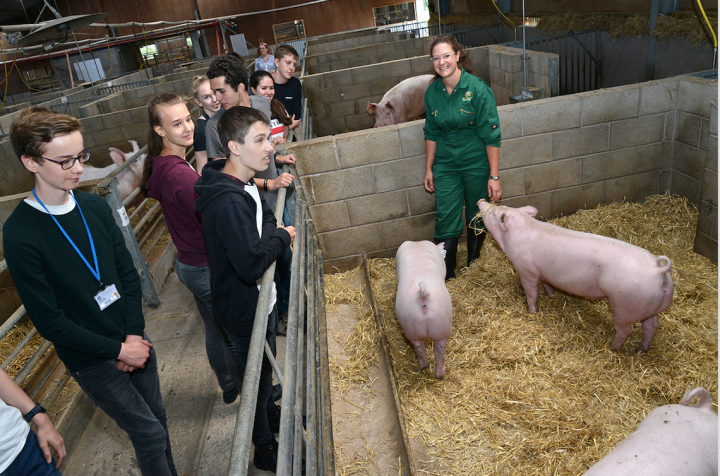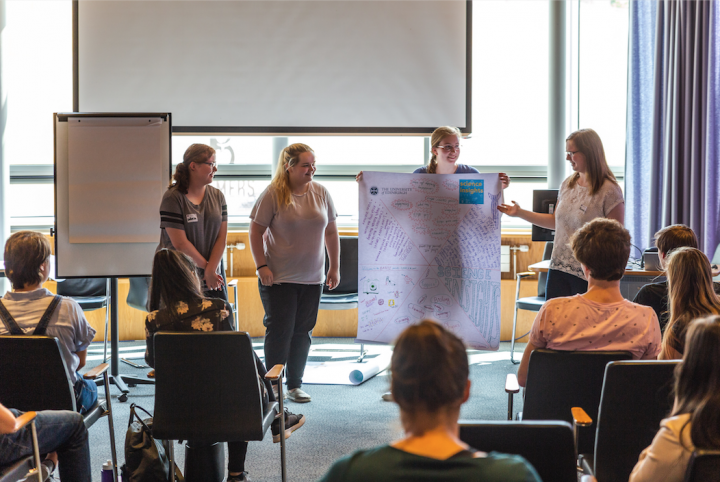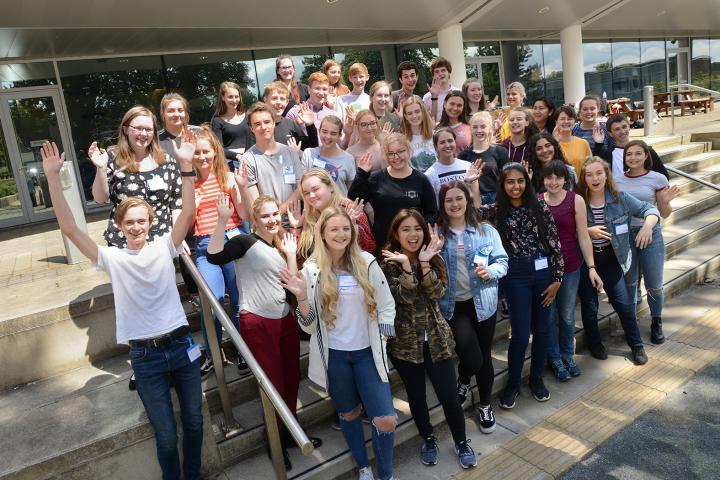Science Insights 2018 – Blog #3
Jessica O'Loughlin is from Stornoway on the Western Isles, and was part of the strand who had focused sessions at the Little France and Central campuses.

I applied to the Science Insights program because I wanted to have a better idea about what I was going to study at University. I saw that the program would not only give me experience in the lab and let me get to know different people with the same interests as me, but I would get to explore the campus where I would like to study and experience life in the city where I want to live.
On the first day of the Science Insights week I got the opportunity to meet some of the 40 participants. Having come from the Western Isles I had been worried about being excluded from social cliques, and not being able to find similarities with people from big city schools! However I found we were all in a similar position. Everyone was very open and friendly, and we all got along and had lots of shared interests.
During the week I managed to meet many different scientists who were working on a wide range of biological fields. For example, on the first day there were various workshop stations that had scientists representing different departments and areas of research who talked about what work they do, why they do it, and the economic, global and health impacts that their work will have.
I listened to a talk from the organisation ‘Understanding Animal Research’ which discussed the ethics around using animals for scientific experiments. It was interesting to learn that scientists use many different types of animals, from C. elegan worms to calves, to research an array of issues including: how neurones work to regulate behaviour, how to cure Batten’s disease, and many other medical applications.
I also got the opportunity to meet other members of staff. Some of whom include Data Analysis staff who taught me about surveying, collecting, safeguarding and analysing data for scientific purposes. This led to a very difficult ethics discussion about the safe guarding of data.

The most memorable part of the week was on the fourth day, when I got to meet Dr. Prakash Ramachandran. Not just for learning about his study on the liver, but hearing about how he managed to get into research from a medical background. Next year, I hope to be starting my study of medicine and eventually become a GP. The main worry I had for studying medicine was about what alternatives I would have if I ended up wanting to diversify. I found it very interesting listening to Dr. Ramachandran explaining how the medical courses work and the different types of career and study paths that are available with a medical degree.
Whilst I was with him, he also gave a detailed description about the slide staining process, and allowed me to try their new microscope and use the computer software to analyse the image.
There were many aspects of a scientific career that I learnt during the week that were new to me. When visiting the labs, I saw that all the scientists were working together and we’re having fun while they did so.
Seeing the importance of ethics in research took me by surprise too. Not only did I learn about the ethics surrounding animal experimentation, but also the ethics involved in studies and surveys with humans. Nothing is overlooked, and everyone has their own ideas and solutions to the dilemmas faced in all aspects of work and research.
My time in Edinburgh has also been an eye-opening experience on another level too. Speaking with scientists made me realise that a lot of things can – and do – go wrong when doing experimental research. However, they also taught me that it is important to not be disheartened when experiments do not go they way you expected them to go. You must always evaluate what you do, and crack on with the next plan.
If I could go back and tell myself anything before the week began, I would make myself take more notes. They may be tedious to take, but when the week is over I would be glad to have them. I would also make sure that I asked more questions during the lab taster sessions. They are a great opportunity to get to know more about university life and study, on a one-to-one basis.
To conclude, my week on the Science Insights program has greatly enhanced my understanding and appreciation for a scientific career. Many of my questions were answered, many of my previously held prejudices were challenged, and I have had great fun too!

Links:
Science Insights – programme information

